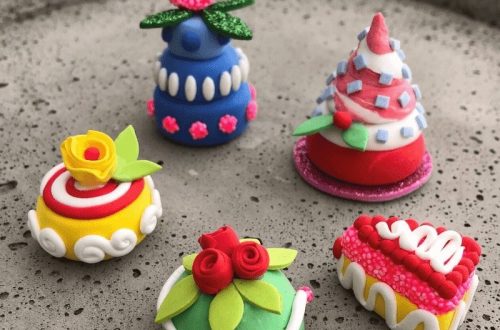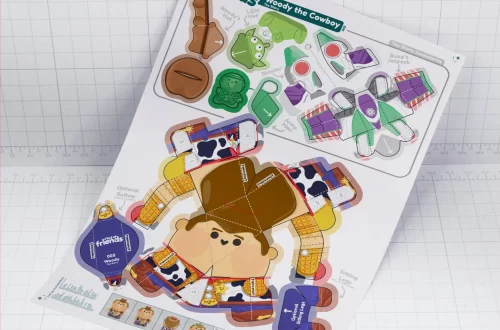Introduction to the Clue Board Game
If you’ve ever wanted to experience the thrill of solving a murder mystery, the Clue board games is the perfect choice for you. This classic game puts players in the shoes of detectives, trying to uncover who committed the crime, with what weapon, and in which room. This guide explains how to play the Clue board game, ensuring you have all the essential knowledge to begin your crime-solving adventure.
The Objective of Clue
The goal of the game is straightforward: deduce the combination of the murderer, weapon, and location before your opponents do.
Why Play Clue?
Engaging Gameplay: Immerse Yourself in an Atmosphere of Suspense
Clue offers players not just a game, but a captivating experience that plunges them into a world of mystery and intrigue. Each turn is filled with suspense as players navigate the elegant halls of the mansion, uncovering secrets and piecing together essential clues. The thrill of making a suggestion only to be met with silence or shocking revelations heightens the tension, making every decision critical. As you engage in discussions and face the uncertainties of the investigation, board games invite you to embody your character, enhancing the immersion. The rich storyline and vivid game components create a unique ambiance, allowing players to momentarily escape reality into the gripping world of a detective story.
Social Experience: Ideal for Gatherings and Family Nights
Clue is perfect for social settings, as it encourages interaction and collaboration among players. Whether it’s a family game night or a friends’ gathering, Clue brings people together, fostering camaraderie and friendly competition. The laughter that erupts from playful accusations, the suspenseful moments of suspicion, and the collective brainstorming create a lively atmosphere that strengthens bonds. Additionally, its simple yet intriguing gameplay makes it accessible for players of different ages and skill levels. This inclusivity ensures that everyone can participate, resulting in memorable experiences and shared stories that will be recounted for years to come.

Strategic Thinking: Requires Logical Deduction and Planning
At its core, Clue is a game of strategy that challenges players to employ logical reasoning and critical thinking. As players collect information through suggestions and deductions, they must analyze the data and eliminate possibilities to uncover the truth. Successful players must carefully plan their movements around the board, choosing rooms strategically to maximize their opportunities for discovering new clues while minimizing risks. The requirement for foresight—deciding when to make a suggestion or accusation—adds layers of depth to the gameplay. This mental exercise not only sharpens your deductive skills but also enhances your ability to think critically under pressure, making Clue not just a game of chance, but a battle of wits among seasoned detectives.
Understanding the Components of Clue
Before diving into how to play Clue, familiarize yourself with the board games’ components.
Game Pieces
- Character Tokens: Six unique characters, including Miss Scarlet and Professor Plum.
- Weapons: Six deadly weapons, such as the candlestick and revolver.
- Rooms: Nine different rooms, like the Library and Kitchen.
Game Cards
- Suspect Cards: Identify the characters involved in the mystery.
- Weapon Cards: List the potential weapons used in the crime.
- Room Cards: Enumerate the locations where the murder could have occurred.
Board Game
The game board represents the mansion where the murder takes place. Each room has designated pathways connecting different areas.
Setting Up the Game
Now that you’re acquainted with the components, let’s set up the board games.
Step-by-Step Setup
- Choose Characters: Each player selects a character token.
- Prepare Cards: Shuffle the suspect, weapon, and room cards separately.
- Create a Secret Card Envelope: Randomly select one suspect, one weapon, and one room card to place in the envelope.
- Distribute Cards: Distribute the remaining cards to players evenly.
- Set the Board: Place all tokens in the Starting Room designated for each character.

How to Move Around the Board
Movement in Clue is a crucial mechanic that can impact your strategy significantly.
Roll the Dice:
At the start of each turn, players will roll two six-sided dice to determine their movement potential across the game board. The numbers displayed on the dice dictate how many spaces a player can advance. This adds a layer of chance and strategy, as players must calculate their moves based on the outcome of their rolls.
Entering Room:
Players can enter different rooms by simply moving their game piece into the doorway of a room they wish to explore. Each room might offer unique advantages, clues, or challenges, making the choice of where to go pivotal to the game’s progression.
Using Secret Passages:
In addition to regular movement, certain rooms are equipped with secret passages that provide shortcuts to other rooms. These hidden routes can drastically alter the pace of the game, allowing players to bypass obstacles or escape from potential threats quickly. Mastering the layout of the board, including these secretive pathways, can be key to outmaneuvering opponents.
Tips for Movement
- Stay Observant: Pay attention to where other players are moving.
- Strategic Positioning: Choose rooms that give you answers to your questions.
How to Make Suggestions
Making suggestions is another vital step toward solving the mystery.
Steps to Make a Suggestion
- Enter a Room: You must be in a room to make a suggestion.
- State a Suspect and Weapon: For example, “I suggest it was Miss Scarlet with the revolver in the Library.”
- Show Cards: The player to your left must show you one of the cards if they have it.

The Importance of Suggestions
Gather Information:
Throughout board games, gathering information is crucial in your quest to solve the mystery. Every time a player makes a suggestion about the suspect, weapon, or location involved in the crime, it brings them closer to identifying the guilty party. Players will listen carefully to the responses they receive, as each clue reveals vital details. Collaborating and sharing insights with other players enhances the investigation, allowing everyone to piece together the puzzle more effectively. The suggestions not only shed light on potential suspects but also provide context about the crime, helping to build a clearer narrative as players progress.
Eliminate Possibilities:
Each suggestion serves as a strategic tool to narrow down the options. By methodically eliminating suspects, weapons, and rooms from consideration, players can streamline their investigative process. Keeping track of which suggestions lead to confirmations or denials helps formulate a clearer picture of the remaining possibilities, ultimately guiding players toward a well-informed conclusion. Careful analysis and deductive reasoning become indispensable as the game unfolds and the mystery thickens.
Winning the Game
To win the Clue board game, you need to make an accusation.
Steps to Make an Accusation
- Declare an Accusation: For example, “I accuse Colonel Mustard in the Lounge with the rope.”
- Check the Envelope: If you are correct, you win; if not, you’re out of the game.
Strategy for Winning
- Endgame Planning: Save your accusation until you have solid evidence.
- Watch Others’ Moves: Keep track of what others have suggested and shown.
Clue Strategies for Success
To elevate your gameplay, consider these strategies for success.
Keep Notes
- Make a Personal Notes Sheet: Track which cards you have and what you learn from suggestions.
- Mark Off Cards: This will help you deduce the remaining possibilities.
Observe Your Opponents
- Pay Attention: Notice what cards they may be showing.
- Predict Their Moves: Try to outsmart them by predicting their suggestions.
Manage Your Suggestions Wisely
- Background Strategy: Don’t always make suggestions that might help others deduce your findings.
- Mix it Up: Use a variety of strategies to keep your opponents guessing.
Conclusion
Now you’re fully equipped with all the information you need on how to play the Clue board game. Immerse yourself in the intrigue, use strategies wisely, and enjoy the thrill of deduction.
Gather your friends, set up the game, and may the best detective win!




